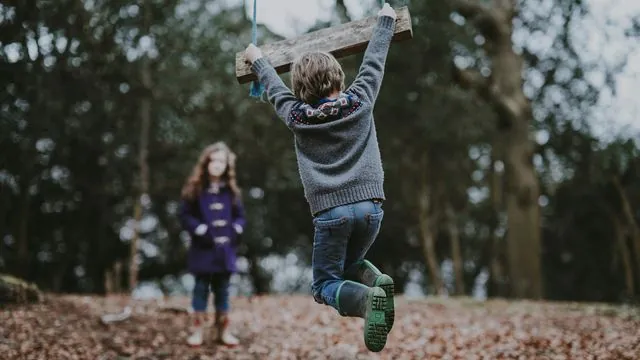
Nature's Healing Touch: A Groundbreaking Study Shows Benefits for Children's Mental Health in Quebec
2024-11-18
Author: Daniel
Introduction
In a remarkable new study, researchers from McGill University and Université de Montréal have discovered that spending just two hours a week in natural settings can significantly improve mental health symptoms among children aged 10 to 12.
Led by Sylvana Côté, the research highlights the urgent need for nature-based interventions in educational settings, especially in light of a recent UNICEF report that underscores the importance of green spaces for child development.
Study Overview
Published in JAMA Network Open, this innovative study analyzed the impact of outdoor learning on over 500 schoolchildren across Quebec during the spring of 2023.
Teachers observed substantial behavioral improvements in students who initially exhibited the highest levels of mental health concerns, such as anxiety, depression, impulsivity, and social difficulties.
Significance of the Research
Marie-Claude Geoffroy, the senior author and an associate professor in McGill's Department of Psychiatry, stated, “Our findings suggest that nature-based programs can target children with the greatest vulnerabilities, potentially leveling the playing field when it comes to mental health among school-aged children.”
This research is particularly significant as it is the first randomized controlled trial to provide tangible evidence of the psychological benefits of nature for schoolchildren.
Methodology
Approximately 1,000 children from 33 diverse elementary schools participated—each located within one kilometer of a park or green space.
The study was set against a backdrop of increased concern about children's mental health during the pandemic, inspiring the initiative to bring young students outdoors for educational activities.
Program Details
During the program, students received their regular curriculum lessons in subjects like math and science amidst nature, with additional short activities focusing on mental health, such as art projects and mindfulness exercises.
Following these interventions, teachers reported that children appeared calmer, more engaged, and better able to focus in class.
Low-Cost Intervention
The low-cost nature of this intervention presents a viable solution for schools looking to support vulnerable students without necessitating significant resource investment.
Tianna Loose, a post-doctoral fellow at Université de Montréal and the study's lead author, emphasized the potential for this approach: “It poses no risks and was very well-received by both students and teachers, making it a promising strategy for schools with access to green spaces.”
Future Directions
Encouraged by these findings, the research team plans to follow up with a new initiative aimed at teenagers, focusing on co-designing outdoor interventions to enhance well-being, combat climate anxiety, and strengthen the bond with nature.
Conclusion
As mental health concerns continue to rise among youth, such innovative research offers hope and practical solutions.
The time has come to embrace the healing power of nature in education—who wouldn’t want to turn their school days into refreshing adventures that boost both mood and learning?


 Brasil (PT)
Brasil (PT)
 Canada (EN)
Canada (EN)
 Chile (ES)
Chile (ES)
 España (ES)
España (ES)
 France (FR)
France (FR)
 Hong Kong (EN)
Hong Kong (EN)
 Italia (IT)
Italia (IT)
 日本 (JA)
日本 (JA)
 Magyarország (HU)
Magyarország (HU)
 Norge (NO)
Norge (NO)
 Polska (PL)
Polska (PL)
 Schweiz (DE)
Schweiz (DE)
 Singapore (EN)
Singapore (EN)
 Sverige (SV)
Sverige (SV)
 Suomi (FI)
Suomi (FI)
 Türkiye (TR)
Türkiye (TR)